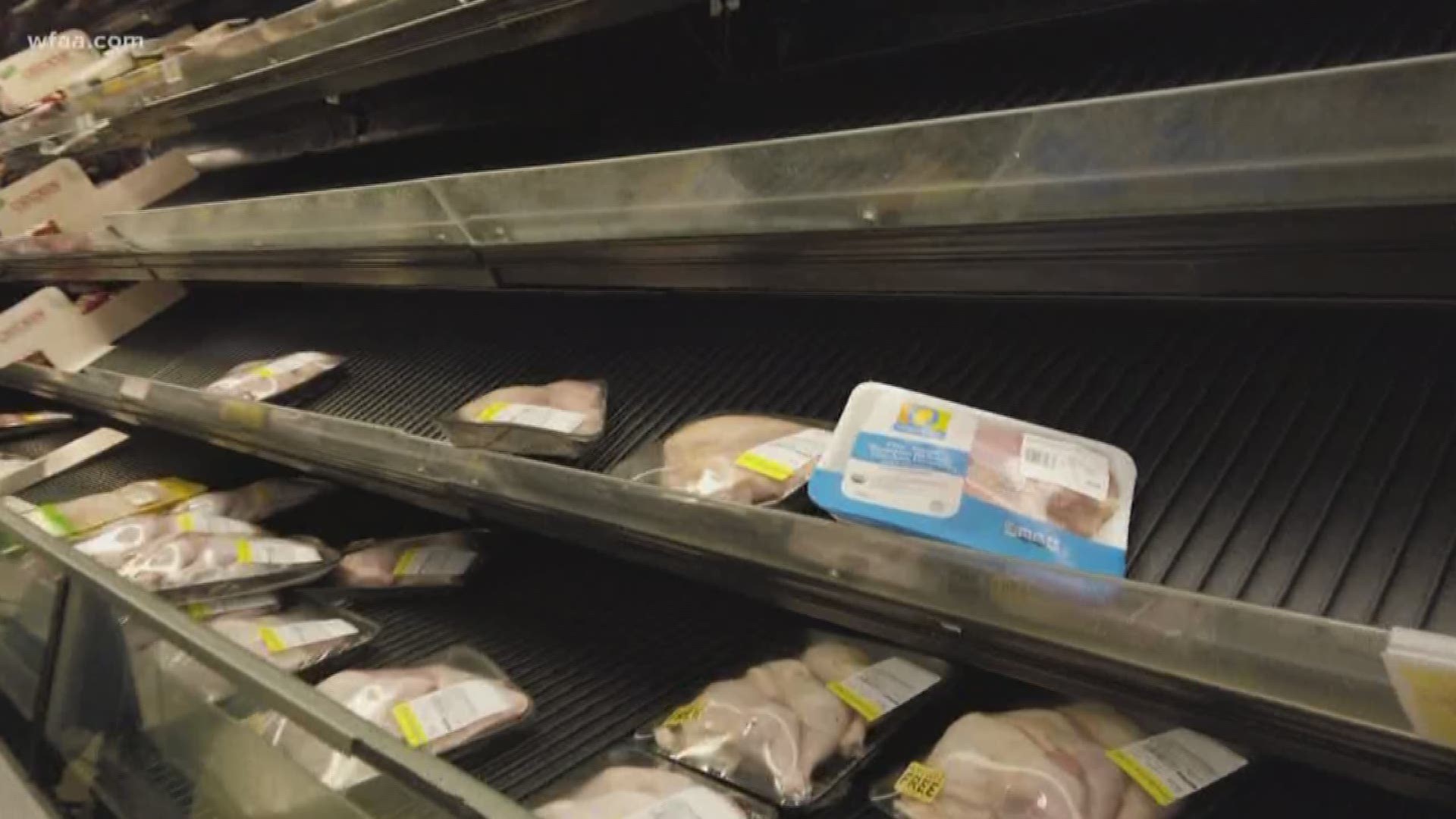ARLINGTON, Texas — There's plenty to eat and drink on most grocery store shelves. But there's still no toilet paper and only a thin supply of canned goods, rice and ramen.
Why is this still happening? That's what I asked professor Dave Malenfant. He's a supply chain expert at TCU.
“The supply chain cannot keep up with the demand,” he tells me.
On a scale of 0-10, how healthy does he think the nation’s supply chain is right now?
“I think we're down to about four,” Malenfant said.
Malenfant said the links in the supply chain for things like toilet paper are under incredible strain. And it starts with us, the customers.
If we buy four times more toilet paper than normal, we overwhelm our local store. So, the store orders more from the distributor. The distributor leans on the manufacturer to ramp up production. For that, they need more raw materials from their supplier.
“Now, because they can't get the supply there quick enough, now we have to control the demand. How do we control the demand? You can only have two packages of toilet paper. You can only get this many of this item,” he said.
On the demand side, stores like Target, Costco and Kroger are limiting how much customers can buy of high-demand items.
One the supply side, Walmart has reduced hours at some stores to allow more time to stock shelves. Also, the company that owns Tom Thumb intends to hire 4,000 workers while Amazon wants 100,000 new workers.
Malenfant said those hiring targets may be tough as people are advised to stay home.
“In my career, we've always built in models for the hurricane season: 'Here's what we're going to do from the standpoint of supply chain to accommodate the hurricane season.'
"This is something that has never been anticipated."
Never planned for it. But, Malenfant believes, if people stop hoarding, the supply chain is more than up to the task.
More on WFAA:
- Tarrant County man dies day before positive COVID-19 test results
- Grocers, cleaning companies look to make big hires to meet demand
- Dallas restaurants scramble to stay in business and retain employees during Covid-19 shutdown
- March 17 primaries live updates: Biden wins Florida, Illinois, Arizona; Trump secures GOP nomination
- Keeping kids at home during the coronavirus outbreak isn't easy. These moms are here to help.

